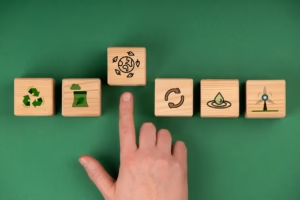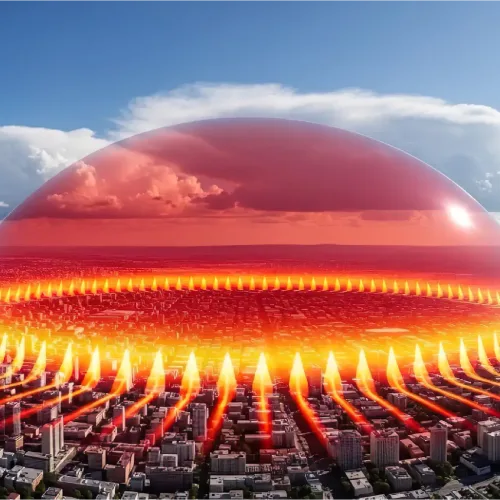Polyethylene succinate (PBS) is not just another plastic; This is a game changer in the transition towards a sustainable future. As industries and consumers become more environmentally conscious, the demand for materials that reduce waste and promote sustainability is increasing. PBS, is a biodegradable polymer, stands out as a key player in this transformation. Let’s explore how PBS is lead transformation in waste management and supporting the circular economy.
Why Polyethylene Succinate is Special?
Polyethylene succinate is a biodegradable plastic that breaks down naturally, unlike conventional plastics that can persist in the environment for hundreds of years. This alone, PBS, is an important asset in reducing plastic waste. However, PBS offers more than just its biodegradability. It also possesses the properties of traditional plastics such as strength, ductility, and heat resistance, making it versatile enough to use in everything from packaging and agricultural films to textiles and disposable cutlery.
By choosing PBS over conventional plastics, manufacturers can significantly reduce their environmental impression. This transition not only reduces our dependence on fossil fuels but also supports the broader goal of creating a more sustainable economy.
Polyethylene Succinate’s Role in Waste Management
PBS is playing a critical role in transforming waste management by handling some of the most pressing challenges. Here’s how PBS contributes:
- Compostable Waste Reduction: PBS products can be composted at the end of their life cycle, reducing the amount of waste sent to landfills. As they decompose, they enrich the soil, creating a positive loop in waste management.
- Enhanced Recycling: Traditional plastics often present challenges in recycling as they become contaminated. On the other hand, PBS works well with other biodegradable materials, which makes recycling more efficient. This compatibility enhances the recycling process, allowing us to recover valuable resources that would otherwise be lost.
- Lower Environmental Impact: The disposal of PBS through incineration generates fewer harmful emissions than conventional plastics. This reduces the carbon footprint of waste disposal processes and aligns with global efforts to combat climate change.
Incorporating PBS into the Circular Economy
The circular economy is about reducing waste, reusing resources, and regenerating natural systems. Polyethylene Succinate fits perfectly into this model by offering materials that support each of these goals.

In a circular economy, products are designed with their entire life cycle in mind. PBS makes this possible by becoming an eco-friendly option from start to end. For example, packaging made of PBS doesn’t just temporarily serve its purpose; It can be composted or recycled, keeping the material in use and reducing the need for new, virgin resources.
The adoption of PBS is also increasing innovation. As more companies start using PBS, there is a push for better composting technologies and recycling systems. This collective effort is helping to make sustainable practices more accessible and broader, moving us closer to a truly circular economy.
Overcoming Challenges and Future Outlook
While Polybutylene Succinate has many advantages, there are still challenges to overcome. The production cost of PBS is currently higher than that of traditional plastics, which can be a barrier to widespread adoption. However, as demand for sustainable materials growing and manufacturing processes become more efficient, these costs are expected to come down.
Another challenge is the infrastructure needed to manure and recycle PBS. For PBS to reach its full potential, we require better systems in place for its disposal. This requires collaboration between governments, businesses, and consumers to build and support these systems.
Despite these challenges, the future of Polyethylene Succinate looks bright. As more industries recognize the benefits of PBS, it is likely to become a standard material in waste management practices. Its ability to reduce plastic pollution and support recycling efforts makes it a vital tool in creating a more sustainable future.
Conclusion
Polyethylene Succinate is more than just a biodegradable plastic, it is a catalyst for change in the way we manage waste and think about resources. By utilizing PBS, we can take important steps toward a circular economy where waste is minimized, and the environment is protected. As we continue to look for sustainable solutions, PBS offers a promising path forward.




